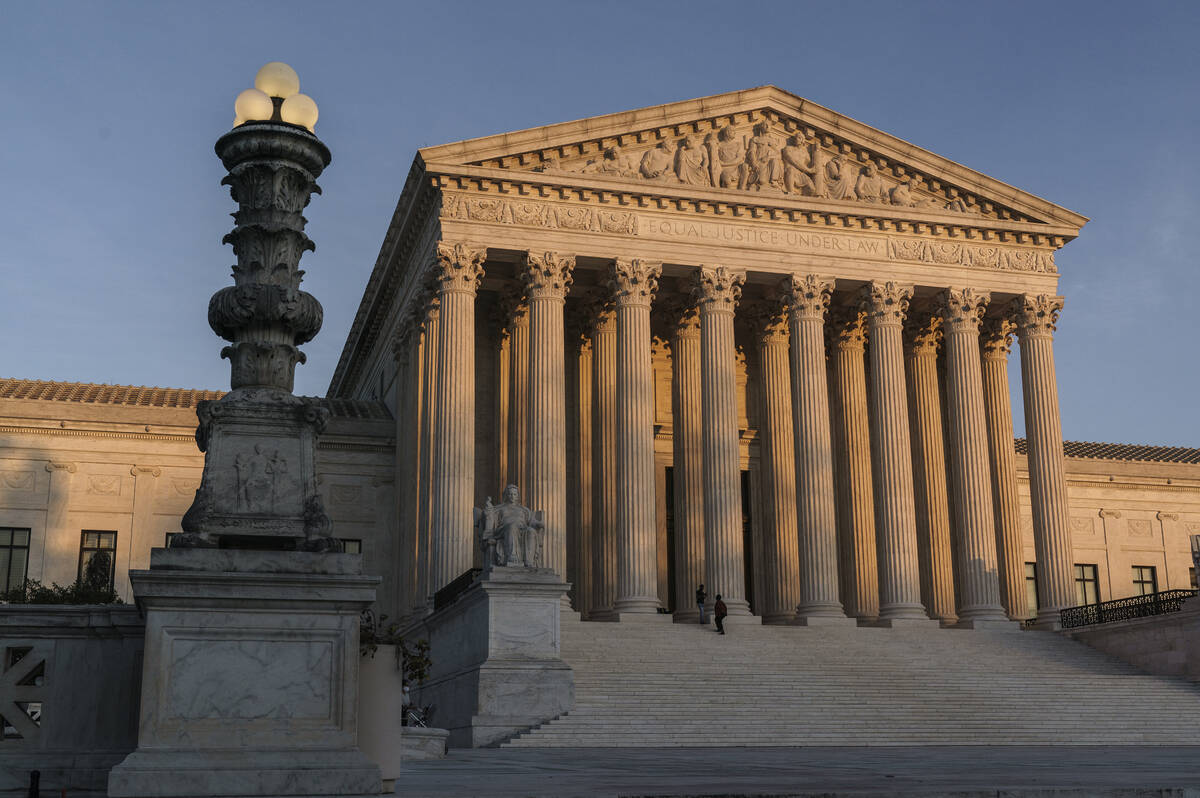COMMENTARY: Biden administration does bidding of greens’ shakedown
Nearly four years ago, Joe Biden kicked off his presidency by killing the Keystone XL pipeline and suspending new oil and gas leasing and drilling permits on federal land. Now, as he heads for the exit, the administration is going out the same way: siding with efforts by cities and states to use local nuisance laws to punish international energy companies for selling oil and gas.
Honolulu filed a lawsuit against Sunoco, Exxon, ConocoPhillips and other energy companies in 2020, accusing them of creating a “public nuisance” by producing fossil fuels that emit greenhouse gases.
The lawsuit also alleges that the companies misled the public about the facts about energy and carbon emissions.
The energy companies argued that claims addressing climate change are regulated by federal laws such as the Clean Air Act, not conflicting state laws, and that allowing cities and states this license will lead to litigation chaos. Last spring, they filed a petition with the Supreme Court, urging it to step in and clarify whether federal laws apply to these claims.
It’s an analysis embraced by John Yoo, a law professor at the University of California, Berkeley, and a member of the George W. Bush Department of Justice.
“If Honolulu gets away with such a lawsuit, states could be encouraged to concoct similarly unlimited theories of tort liability that interfere with the nation’s ability to pursue coherent policies on energy and climate change,” Yoo recently wrote in National Review.
The lawsuit is part of a national effort by plaintiffs’ attorneys and Democratic-governed cities, counties and states to use state and local power to take action against global energy companies. Lawsuits such as Honolulu’s have been filed from Maine to California. In New York, Gov. Kathy Hochul recently signed legislation forcing fossil fuel producers to pay the Empire State $75 billion over the next quarter century to address the effects of climate change.
The administration’s stance in the Honolulu case is a stark reversal of the positions of Barack Obama and Donald Trump. In 2020, the past solicitor general argued cases involving cross-boundary pollution “‘may well be thought to ‘arise under’ federal law for ‘jurisdictional purposes.’” This opinion involved a lawsuit by the city of Baltimore against global oil and gas companies.
After the Supreme Court took up the case reviewing the Baltimore case, then-Assistant Solicitor General Brinton Lucas argued the lawsuit was “inherently federal in nature” because it involved alleged injuries “caused by emissions from all over the world” that can’t be subjected to conflicting state-based regulations.
The Supreme Court then ruled 7-1 in favor of the oil companies, directing the 4th U.S. Circuit Court of Appeals to review all of the defendants’ jurisdictional arguments.
In October 2023, the Hawaiian Supreme Court allowed the Honolulu case to proceed under state laws. Fast-forward to today, the Biden administration is reversing the government’s stance on federal supremacy to keep the Supreme Court from considering the case.
In a Dec. 10 brief to the Supreme Court, Solicitor General Elizabeth Prelogar cited lower court rulings as part of her argument that local governments should be allowed to wield this power.
“After the change in administration and in light of those intervening developments, the United States has re-examined its position and has concluded that state-law claims like those pleaded here should not be recharacterized as claims arising under federal common law,” Prelogar also wrote in a 2023 brief to the Supreme Court in a different case.
Critics of the administration note Prelogar waited for months to respond to the Supreme Court’s request for input from the administration, not filing her brief until after the November election.
The energy companies filed a reply to the solicitor general’s brief last week, arguing that “the consistent position of the United States, as expressed to this court and lower courts in previous cases, has been that federal law precludes the application of state law to transboundary pollution claims.”
“The Hawaii Supreme Court’s decision flatly contradicts U.S. Supreme Court precedent and other federal circuit court decisions,” added Theodore J. Boutrous Jr., counsel for Chevron Corp. “In dismissing a nearly identical lawsuit, the 2nd Circuit held, ‘such a sprawling case is simply beyond the limits of state law.’ The Supreme Court should grant review now to prevent pointless harm to our nation’s energy security.”
History appears to be on their side.
In a 2010 case, Obama administration acting Solicitor General Neal Katyal criticized a “potentially open-ended series of common-law suits in far-flung district courts” in a Supreme Court brief. Justices were considering a suit by New York City and six states against five private electric power companies over the use of fossil fuels. Katyal suggested a regulatory solution “will be far better suited to addressing the scope of (climate change) and to fashioning an appropriately tailored set of remedies.” A unanimous Supreme Court agreed with an opinion by the late Justice Ruth Bader Ginsburg.
Yoo believes the Commerce Clause in the Constitution grants the federal government the power to intervene. He worries about what could happen if the Supreme Court is not involved.
“States could punish out-of-state companies for temperature changes brought about by a truly national — indeed international — weather dynamic. Energy-producing states would likely respond with retaliatory measures against blue states,” he wrote.
Taylor Millard writes about politics and public policy for InsideSources.com.






















